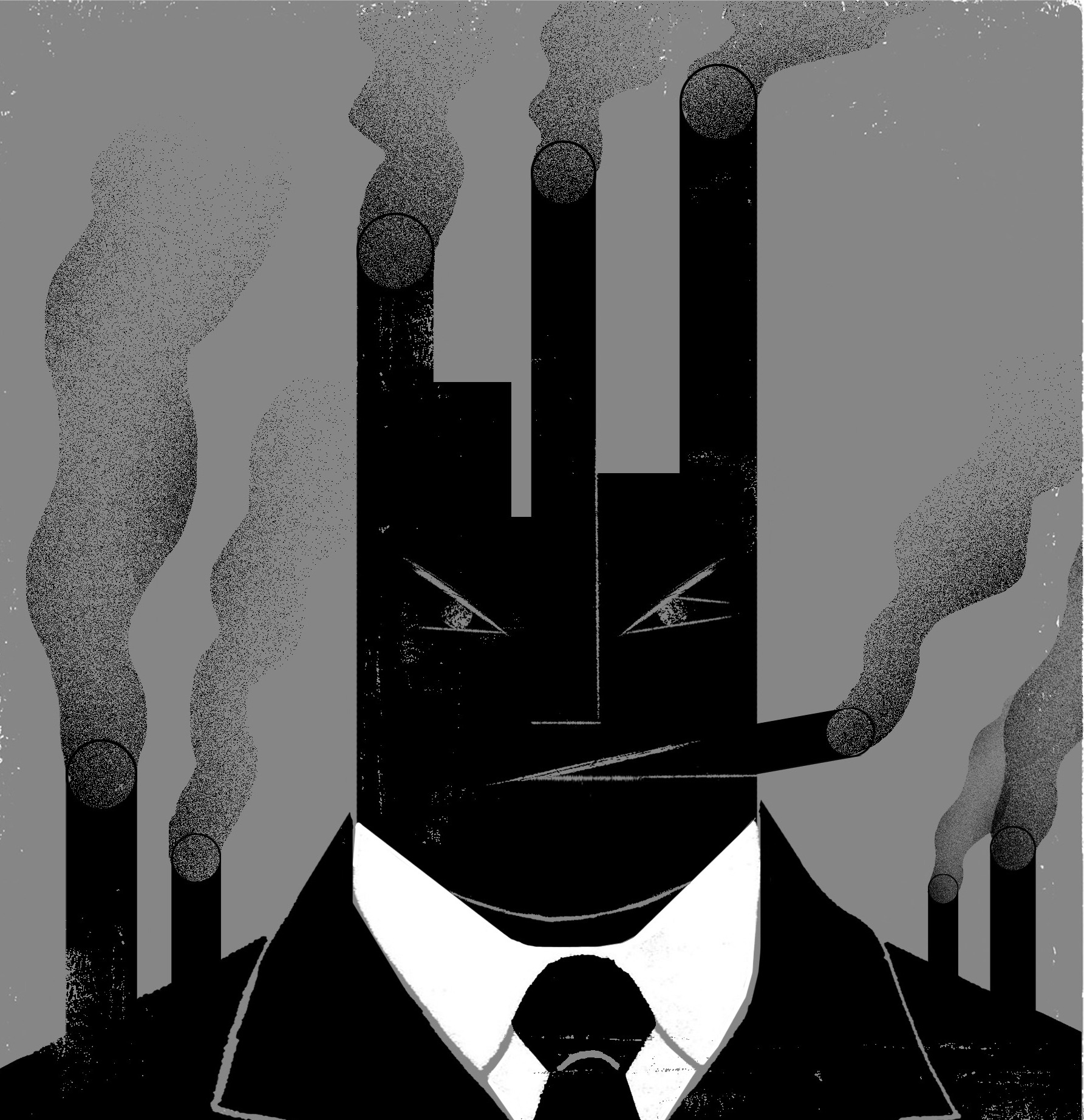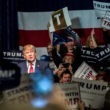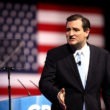Why do we criticize people for doing what they were hired to do? Take Thomas J. Donohue, for example. Day after day the poor guy gets pummeled by Washington non-profits and mainstream media for doing his job. He’s out there challenging healthcare reform; suing the SEC to stifle the regulation of financial markets; lobbying Congress to reduce punitive damages in product liability litigation; attempting to gut the Foreign Corrupt Practices and False Claims Acts; undermining carbon pollution standards; questioning the causes of climate change; opposing a federal minimum wage; defending high-salt processed foods; attacking “net metering” of solar energy panels; interfering in the election of state supreme court justices; shilling for American tobacco overseas; opposing environmental legislation; fighting paid maternity leave; persuading American businesses to fight campaign-finance disclosure; opposing net neutrality; defending high pharmaceutical prices; and laundering large “anonymous” donations from the Koch Brothers’ Freedom Partners and Karl Rove’s American Crossroads Super PAC.
Why should Mr. Donohue be rebuked for this very abbreviated list if those tasks were handed to him in 1997, when he began serving as CEO of the U.S. Chamber of Commerce, whose core mission was then, and still is, “to advance human progress through an economic, political, and social system based on individual freedom, incentive, initiative, opportunity, and responsibility?”
This would be a fair question were Donohue committed to that mission and doing what he does for all American enterprise, or even for the 150 members of the U.S. Chamber Board of Directors, or the 3 million small businesses, 7,000 state and local chambers and 116 overseas American chambers he claims to represent in 103 countries.
But he’s not. He is, in fact, doing the bidding of a few national politicians and their mostly anonymous corporate sponsors who believed in 1996, and evidently still do, that a pragmatic, staid national chamber, founded to be “in touch with business associations and chambers of commerce throughout the country” was wasting its time and treasure.
A truly valuable trade association, according to this small group of Republican politicians and their corporate sponsors, would transform itself from a high-minded affinity group (described by a tobacco executive as a “weak sister”) into a fighting force for a few troubled American industries and products—tobacco for one, but also banking, health insurance, pharmaceuticals, firearms, coal, and other fossil fuels. All were threatened by progressive idealists and the excesses of federal regulation, according to a warning from corporate lawyer Lewis Powell. It was time, members of this corporate cabal argued, for “capitalists to carry the banner” of what Powell described as “confrontation politics” and “not to hesitate to attack liberals and push politicians for the support of the free enterprise system.”
Powell made his argument in a “confidential” memorandum written in 1971 at the invitation of his friend Eugene B. Sydnor Jr., chairman of the U.S. Chamber’s Education Committee. Powell, a former American Bar Association president, champion of winner-take-all capitalism, and a member of 11 corporate boards, warned that American business was “under broad attack” from political and social interests and organizations that wanted to institutionalize “socialism or some form of statism.”
“We are not dealing with sporadic or isolated attacks from a relatively few extremists or even from the minority socialist cadre,” Powell wrote. “Rather, the assault on the enterprise system is broadly based and consistently pursued. It is gaining momentum and converts.” The enemies of American enterprise he descried included, “not unexpectedly, the Communists, New Leftists, and other revolutionaries who would destroy the entire system, both political and economic. These extremists of the left are far more numerous, better financed, and increasingly are more welcomed and encouraged by other elements of society than ever before in our history.”
Here was a memo from a man who had sought to keep the government from regulating cigarettes long after it was known that they were killing countless Americans and who one year later would be elevated to the Supreme Court. And Powell was whining at full volume.
“Few elements of American society today have as little influence in government as the American businessman, the corporation, or even the millions of corporate stockholders. . . . Business must learn the lesson, long ago learned by labor and other self-interest groups, that political power is necessary; that such power must be assidously [sic] cultivated; and that when necessary, it must be used aggressively and with determination.” To silence the “disquieting voices” the national chamber “would require far more generous support from American corporations than it has ever received in the past.”
The memo was leaked to investigative columnist Jack Anderson and widely circulated.
It was time for “capitalists to carry the banner” of what Powell described as “confrontation politics” and “not to hesitate to attack liberals and push politicians for the support of the free enterprise system.”
The pro-corporate movement it spawned would a few years later elevate men like Newt Gingrich, Tom DeLay, Dick Armey, and John Boehner to national prominence. Powell’s thinking would ultimately inspire Gingrich and his allies to transform the U.S. Chamber of Commerce.
Richard Lesher was a bright, conservative Pennsylvania gentleman who had been running the chamber for 22 years, when in 1994 he decided to support the Clinton administration’s health care package. Gingrich, Armey, and Delay let the Chamber board know that Lesher had to go.
By 1997, Gingrich had consolidated his power as Speaker of the House, and identified a replacement for Lesher, Tom Donohue, a take-no-prisoners lobbyist for the trucking industry. The chamber, he told Gingrich and The Wall Street Journal, was a “sleeping giant, missing in action from many important political battles.”
The deal was sealed over a three-hour dinner during which Donohue expressed his opinions on tort reform, workers’ rights, businesses’ bottom lines, and financial regulation.
Donohue turned out to have been a near-perfect choice. Not only has he quadrupled the chamber’s annual budget by scaring billions of dollars out of the corporations Powell said should be funding the counter-revolution, he has transformed the organization into the largest business lobby in Washington, given the tobacco industry a global reprieve, offered Wall Street protection from Elizabeth Warren, provided Big Pharma some hope for its future. And he can be credited with creating and maintaining a Republican majority in both the House and Senate.
Biggest gorilla in town
“My goal is simple;” Donohue wrote to Roy Marden, the Philip Morris exec who had described the chamber as a weak sister, “to build the biggest gorilla in this town—the most aggressive and vigorous business advocate our nation has ever seen.” He then promised Marden to eliminate punitive damages in lawsuits against tobacco companies, who by then, it was clear, were killing and debilitating millions of people around the world.
“If there’s one thing I know how to do it’s to provide great value to those who really step up to the plate. . . . By agreeing to be a strong supporter, you will always be heard here and always have a voice,” he wrote to Marden. A check for $180,000 from Philip Morris arrived on Donohue’s desk a few days later, $100,000 of which immediately paid for TV ads opposing a bill Senator John McCain had introduced to increase cigarette taxes to pay for an anti-smoking program for children.
The new chamber president also threatened to “make life miserable” for politicians he didn’t like and promised anonymous deniability to America’s most embarrassing industries.
The chamber’s culture changed overnight, reflecting Donahue’s announcement that he planned “to build a grass-roots business organization so strong that when it bites you in the butt, you bleed.” In less than two decades, with a chauffeured Lincoln, a private jet, and a $5.5 million annual pay package, Donohue became the nation’s most generously compensated American lobbyist.
Donohue started by expanding his lobbying team from two to 10. Today the chamber boasts 151 registered lobbyists, 87 of them in-house. It spends more on lobbying Congress ($124 million in 2014) than the next four organizations combined, and provides more election campaign support than either of the political parties, almost all of it for Republican candidates, who receive carefully laundered money from donors seeking the political cover a restructured chamber offers them.
Most of the money Donohue raises is kept dark and its donors anonymous. “I want to give them all the deniability they need,” he declared as he began telling his donors that “people seem to listen to you more when you’ve got a bagful of cash.” It was an appealing pitch to businesses and industries with questionable conduct to hide. Yet with public anonymity comes private disclosure. Recipients of dark money must eventually be told who their donors are so they will know whom to reward with anti-regulatory law, policy, and other favors.
Not long after Donohue placed a “show me the money” sign on his desk, he quadrupled the chamber’s annual budget from under $50 million to more than $200 million. He soon became the nation’s largest political campaign contributor, created an entirely new internal legal subsidiary and expanded another. He formed the Institute for Legal Reform (ILR) to fight the power of trial lawyers. The U.S. Chamber Litigation Center, an in-house, non-profit law firm, files more than 100 suits a year against federal regulatory agencies, mostly the EPA, SEC, and the Departments of Labor (including OSHA), Transportation, and Interior, whose regulations are perceived by Donohue and his clients to stifle profit.
But his major accomplishment has been the recruitment of reliable, super-generous corporations. In 1997, only a quarter of Fortune 1,000 companies were members, and most of them paid paltry annual dues. Today almost all 1,000 are members, and many of them part with very generous sums. Yet only a handful of donors provide the lion’s share of the chamber’s strategic assault funds. In 2009 for example, 16 companies provided 55 percent of the chamber’s total budget, most of it targeting the Affordable Care Act.
Health insurers like Aetna, Cigna, Humana, Kaiser, UnitedHealth Group, and Wellpoint, stood to lose billions if the law passed. A retrospective examination of their charitable contributions shows they secretly handed the chamber a stunning $86.2 million in August 2009. Aetna alone ponied up more than $7 million. That money accounted for 40 percent of the chamber’s $214.6 million expenditures in 2009. These companies are capable of producing their own ads and PR. But they use the chamber as a convenient and compliant front group.
“My goal is simple; to build the biggest gorilla in this town—the most aggressive and vigorous business advocate our nation has ever seen.”
Of the 1,523 donations made to the U.S. Chamber in 2012, more than 95 percent were small and inconsequential. But that year more than half the chamber’s income came from 64 anonymous donors giving $121 million. To its campaign to rewrite the nation’s financial regulations Prudential contributed $2 million. Goldman Sachs followed suit with an undisclosed eight-figure donation. When the chamber promised to attack tighter security requirements at chemical plants, Dow contributed $1.7 million. Another donor, to this day anonymous, gave more than $15 million. Donations of that size are not membership dues, they’re protection money.
The chamber claims to represent the “interests of more than three million businesses of all sizes, sectors, and regions.” Although that may be accurate, the claim is often made to sound as if three million firms are dues-paying members. While the chamber will not reveal membership numbers, or identities, it has admitted in the past to having fewer than 300,000 dues-paying members, many of them loosely affiliated through membership in state and local chambers that pay dues to the national organization.
Donahue values his alleged small-firm members because some in Congress are more likely to listen to them than to big business. They’re real people rather than “corporate personhood” fictions that possess free speech and the right to make unlimited contributions but can’t vote. Moreover, they “provide the foot soldiers, and often the political cover, for issues big companies want pursued,” Donohue explains.
A bagful of cash
But it’s the money that provides the leverage. By 2010 the chamber was raising five times what it was before Donohue arrived, almost $250 million in contributions and grants. Most of the new money has been spent on lobbying, electoral campaigns and fighting trial lawyers through the ILR, which also contributes dark money to campaigns, mostly to candidates opposing state supreme court justices with an affection for punitive damages against corporate defendants.
While one might expect that amount of money to produce consistently impressive election results, some cycles are better than others. The 2010 elections did bring a Republican majority to the House, thanks largely to chamber support of Tea Party candidates.
The 2012 election didn’t turn out too well for the chamber, which spent nearly $24 million to defeat several high-profile Democrats in Senate races, including Sen. Sherrod Brown in Ohio, former governor Timothy M. Kaine in Virginia, Claire McCaskill in Missouri, and Elizabeth Warren in Massachusetts, all of whom are still in office. Of 15 Senate races to which the chamber contributed that year, only two went its way. The results were not much better in the House, where $7 million was pumped into 22 races and only four of Donohue’s chosen candidates won.
Despite the unimpressive showing, many donors have stayed loyal. Tom Donohue is nothing if not an awesome fund-raiser. According to one executive, a self-described “Rockefeller Republican” who has watched Donohue hustling corporate money, he simply makes his pitch, asks for a shocking sum, then stares down the donor until he or she (usually he) commits. Weekly email reminders follow. “They sound like they’re coming from the RNC.”
Chamber spending in 2014 was again aimed at electing Republicans, with, for example, $5,637,144 invested in Thom Tillis’s successful campaign against Democratic Senator Kay Hagan and $3,701,491 to defeat progressive Democratic Senator Mark Udall in Colorado.
Donohue promises to commit $100 million to candidates in 2016. He rarely spends as much as he promises, but even half that amount, strategically spent, could keep both houses of Congress in his camp. Three million has already gone to replace retiring Senator Harry Reid in Nevada, and $10 million to support Senators Rob Portman (R-Ohio), Kelly Ayotte (R-N.H.), and Pat Toomey (R-Penn.).
Eroding Support
In 2015, the Council of State Chambers of Commerce commissioned Republican consultant Frank Luntz’s firm to poll 1,000 local, state, and national senior corporate executives who are current or prospective chamber members. The survey revealed that chamber members nationwide overwhelmingly support progressive social and business policies the U.S. Chamber is fighting.
For example, 80 percent of current or prospective members support raising their state’s minimum wage; 73 percent support paid sick days; 72 percent support increased maternity leave time; and 82 percent support increased paternity-leave time.
In response, Luntz’s firm prepared a web seminar hosted by the Council of State Chambers in February of this year, providing “a few helpful hints on how to combat these reforms in your states.” Several local chambers had already left the national organization. Luntz’s insulting response to his own survey will almost certainly lead to the exodus of others. And corporations could follow Apple, Mohawk Paper, Pacific Gas and Electric, Exelon, and PNM Resources, who pulled out last fall, citing the chamber’s pro-fossil climate policy as their reason for leaving. CVS Health Corporation, with its 7,800 retail drug stores, followed, revolted by the chamber’s overseas promotion for another hazardous product, tobacco.
More recently, the staffs of about half a dozen U.S. Senators who were curious about the chamber’s selecting targets and taking positions contrary to the interests of many of its members, in particular regarding tobacco, surveyed the 108 corporations with executive representatives on the U.S. Chamber Board of Directors. The Senate investigators found that approximately half the corporate board members have anti-tobacco and/or pro-climate positions. And not one of their CEOs explicitly supported the chamber’s lobbying actions on tobacco or climate change.
If the chamber’s board and funders don’t mind the slow but steady exodus of state and local chambers, and the departure of some of the most distinguished corporations in American business, they will keep their consummate Washington fixer at the helm.
Yet only a handful the nation’s business and political leaders brought Tom Donohue to Washington. What can be done can be undone.
Mark Dowie is an author and investigative reporter.







0 Comments
Trackbacks/Pingbacks